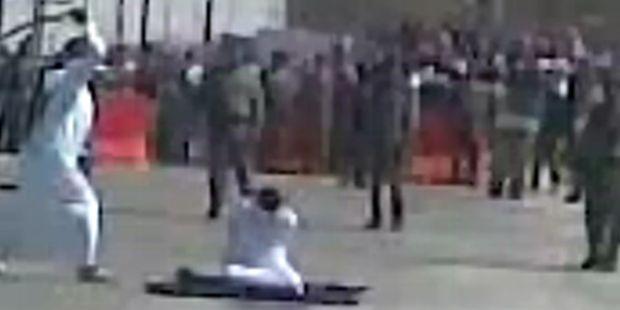
Saudi Arabia is executing nearly two people per week this year: We say NO MORE!
A spree of executions that has sent 10 prisoners to their deaths since the beginning of the year in Saudi Arabia must be halted, Amnesty International said earlier this week.
The beheadings included Abdullah Fandi al-Shammari, who had originally been convicted of manslaughter, but was tried again on the charge of murder in proceedings that did not meet international fair trial standards, as well as Rizana Nafeek, a Sri Lankan foreign domestic worker.
Nafeek’s execution came despite an international campaign protesting her death sentence as violating international legal standards preventing the execution of juveniles. Nafeek’s documents indicated she was 17 at the time of the crime. The protests continued after her death and casted a spotlight on the plight of dozens of migrant workers on death row in Saudi Arabia.
Indeed, Rizana’s case is one of many: According to a recent article in The Guardian, more than 45 foreign maids are facing execution on death row in Saudi Arabia. As with Rizana’s trial, many of these cases involve questionable legal procedures.
Amnesty International is highlighting the case of Siti Zainab Binti Duhri Rupa, who has been detained in Medina Prison in Saudi Arabia since 1999. A migrant domestic worker, she allegedly confessed to the murder of her employer during a police interrogation and has been sentenced to death.
Siti Rupa reportedly suffers from mental illness, but none of this was cited in her trial. She was denied legal assistance and representation throughout her pre-trial detention and is not known to have had a lawyer to represent her at her trial or to have received adequate translation from Arabic during the proceedings.
In November 2001 the Saudi Arabian government announced that Siti Rupa’s sentence could be overturned by her employer’s child; under Shari’a law, the heirs of murder victims have the right to pardon the offender either freely or in exchange for compensation. Siti Rupa is now forced to wait until the child reaches majority and decides her fate. The age of the child is unknown.
Amnesty International USA’s Lara-Zuzan Golesorkhi contributed to this essay.
